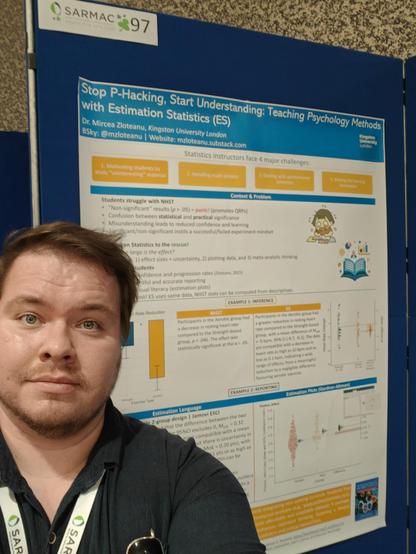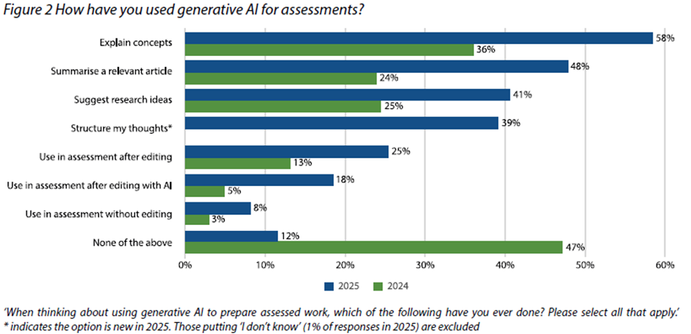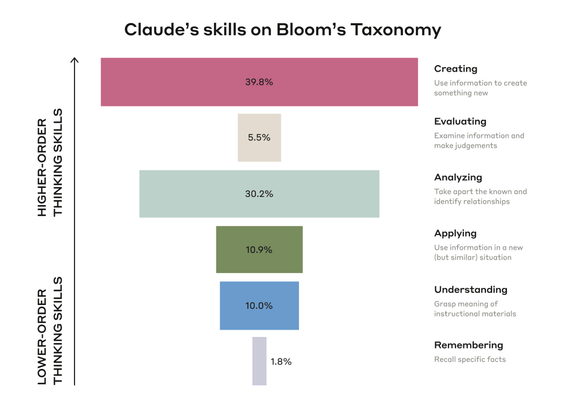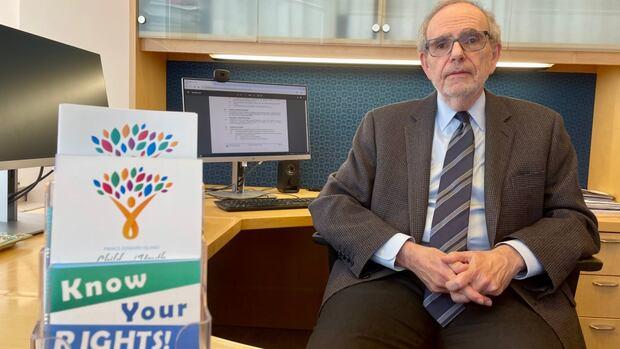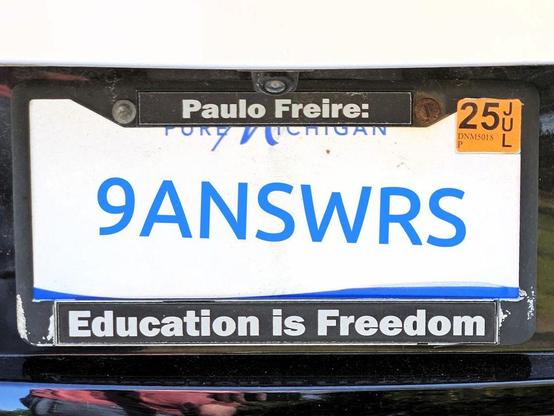New to #criticalreflection? Start with this overview of Brookfield’s 4 lenses & think through reflection prompts to guide your uncovering of which lens feels most comfortable, and which is most challenging
@academicchatter @phdlife @edutooters
#highered #reflection #pedagogy #facultydevelopment #Education https://open.substack.com/pub/higheredpraxis/p/week-5-looking-through-multiple-lenses?r=4j50q&utm_campaign=post&utm_medium=web&showWelcomeOnShare=true
#pedagogy
Matt Seybold on Technofeudalism –
"It isn’t that computing is antithetical to education, it’s that education is happening in many modes and many places during a student’s scholastic life, and sometimes technology can be an aid and sometimes a hindrance."
"I take for granted that whether or not OpenAI or its competitors are actually able to execute the takeover plan they and their political collaborators imagine, their attempt will be destructive. It threatens to further disenfranchise a generation of students who have already been dealt lockdowns, learning loss, book bannings, school shootings, carceral surveillance, protest suppression, overpolicing, and so forth."
#ai #pedagogy #higherEducation
https://theamericanvandal.substack.com/p/against-technofeudal-education
Exclusive for one-day only: my poster on teaching about Estimation Statistics, now up at a #SARMAC near you!
#estimationstatistics #poster #conference #education #pedagogy #sarmac2025 #tarmac
The #peeragogy community trained a #chatbot on the peeragogy handbook. Now the peeragogy community has trained it to turn drafts into prompts and prompts into peeragogical exercises. (peeragogy is collective learning without a teacher):
#Pedagogy and Class Power: Reclaiming #Freire in an Age of Reaction
https://mronline.org/2025/06/12/pedagogy-and-class-power-reclaiming-freire-in-an-age-of-reaction/
因材施教
教育的根本目的是基于学生不同的学习经验与知识背景,让所有人在其原先的认识水平上获得新的启发与更深层次的理解,实现自我的提升与超越。每个人初始的成绩有高低,智力水平有客观的差异,学习研究的进展亦有快慢,但应通过耐心与时间来保证所有人最终能对已有的科学知识达到完全透彻的理解,即所有人在理解的层次上达到同样的终点,殊途同归。这样看来,传统的大中小学课堂教育已经不能满足这种定制化与提升性 (elevation) 的教育需求。自己寻找优秀的教育资源,开展相关的实践项目,并辅以人工智能指点,恐怕是短期内解决该问题的唯一办法。
> 《论语·先进篇第十一 11.22》子路问:「闻斯行诸?」子曰:「有父兄在,如之何其闻斯行之!」冉有问:「闻斯行诸?」子曰:「闻斯行之!」公西华曰:「由也问『闻斯行诸?』,子曰:『有父兄在』;求也问,『闻斯行诸?』子曰:『闻斯行之』。赤也惑,敢问?」子曰:「求也退,故进之;由也兼人,故退之。」
»Design of #generativeAI-powered #pedagogy for #virtualreality environments in #highereducation.« https://www.nature.com/articles/s41539-025-00326-1?Metaver.se #Metaverse #VirtualWorlds #XR #VR #MR #AR #BeyondPictures
I don't recall who linked to this originally but this is excellent by Miriam Reynoldson - Against AI literacy: have we actually found a way to reverse learning?
"Using AI is not about communicating. It’s about *avoiding communicating*. It’s about not reading, not writing, not drawing, not seeing. It’s about ceding our powers of expression and comprehension to digital apps that will cushion us from fully participating in our own lives."
#ai #pedagogy #education #literacy
https://themindfile.substack.com/p/against-ai-literacy-have-we-actually
So a student might hear "don't use generative AI" from a prof but then log on to the university's Microsoft suite which then suggests using Copilot to sum up readings or help draft writing. It's inconsistent, confusing
I am sick to my stomach as I write this because I've spent 20 years developing a #pedagogy that's about wrestling big ideas through writing,discussion, that whole project has been evaporated by for-profit #corporations who built their systems on stolen work It's demoralizing.
•
@stancarey gotta say, grading, itself, has always been problematic
Teaching and grading are distinct things.
If you are a teacher, I recommend you stop using your grading system to help you teach.
Let students cheat with AI. They can fuck up their own lives. Making informed decisions like that has always been in the student's court, and grades have always poorly reflected students' preparedness.
You don't need grades to teach. Teaching is better without grades.
#pedagogy
Oh, I have no problems at all with clay tablets! The physical resistance of the writing material helps in the learning process when taking notes. Sadly good clay tablets are hard to find nowadays, and expensive.
And I love Wikipedia. I was around when it started, and I never advised my students against it. Some of my colleagues did, but they were able and willing to learn.
#Scholasticide #pedagogy #Gaza
"In an age where culture is the primary battlefield, authoritarianism thrives on ignorance, historical amnesia and the brutal aesthetics of cruelty, all normalized as common sense. This is a policy of scholasticide – a full-scale assault on the past – one that aims to erase not only history but the very capacity to critically engage with it. We witness this in Israel’s genocidal war in Gaza, where education is methodically destroyed, universities obliterated and unimaginable violence becomes the foundation of daily life.
In this chaos, young minds are stripped of the tools to understand their history and collective selves, to challenge power and to envision a future free from oppression. Such policies are not only crimes against individual lives; they are crimes against history itself, erasing the very memory of resistance and the struggles that have shaped the present. In the United States, under the leadership of Donald Trump, historical amnesia has taken on a similarly insidious form, one that deliberately fosters ignorance, particularly surrounding the nation’s deep-seated histories of racial violence, colonialism and the ongoing struggles for justice. Books are banned, critical ideas erased from the curriculum, history is whitewashed, dissenting educators fired or threatened with prosecution, and students protesting for Palestinian freedom are abducted, detained and denied due process."
https://www.counterpunch.org/2025/05/30/against-the-erasure-machine/
How are students using Generative AI in UK universities?
Honestly I’m not sure how worried we should be about these findings from HEPI (n=1,041) given it seems the sector has got passed its initial inclination to try and prohibit. If we’re in a situation where only 12% of students are not using LLMs in their assessment then what matters is steering use towards epistemic agency* and way from LLMs supporting a turbo-charged transactional engagement with knowledge.
It’s interesting to contrast these findings with Anthropic’s study of university students using Claude, classified in terms of Bloom’s taxonomy:
The dynamics of cognitive outsourcing (and potential lock-in) differ as you move up from lower to higher-order thinking skills for students. I struggle to see a problem with students using LLMs to support understanding materials, much as I struggle to see a problem with academics using LLMs to produce materials which are easier to understand. Sure we might rapidly end up in a situation where this learning interaction is mediated by LLMs by default but I don’t see a fundamental difference in type from that being mediated by other kinds of digital platforms (e.g. the LMS) or outputs (e.g. Powerpoint). It’s a case of better or worse design rather than something human being lost through the introduction of a technological element.
I think applying and analysing by definition lend themselves to agentive engagements with knowledge. You can’t get the LLM to do something useful unless you’re thinking about what you’re asking, which means to at least some extent an epistemic capacity is being exercised. Certainly students could try and fail to do this, but that’s a different kind of problem to be addressed through the register of AI literacy. The pedagogical challenge comes in recognising how students are doing this in order to design learning processes which support increasingly purposive applications rather than just assuming they will be learning in the same way we did.
It’s evaluating and creating where it gets more concerning. If you’ve already developed these capabilities LLMs can be used to speed up the process (though a soft lock-in might result over time) or enhance the process in the activity I describe as rubber ducking. The problem arises if you haven’t learned how to do this without the LLM, such that the composite capacity (e.g. writing a report) develops in a way that has the LLM baked into it from the outset. For example reliance on LLMs for an outline only concerns me if students haven’t learned to do this without the LLM in the first place. To rely on it to critically evaluate your work and suggest room for improvement carries a similar risk of cognitive outsourcing which is unlikely to be addressed after university by most students.
This is a long-winded way of saying that we urgently need to get beyond the category of ‘AI’ in how we think about these pedagogical challenges. The relationality within the LLM becomes more important to recognise the further up the taxonomy we go. Exactly what ‘creating’ means can now vary immensely depending on the pattern of interaction the student has with the LLM.
It’s also interesting to see that:
- “The main factors putting students off using AI are being accused of cheating (said by 53% of respondents) and getting false results or ‘hallucinations’ (51%). Just 15% are put off by the environmental impact of AI tools.
- Students still generally believe their institutions have responded effectively to concerns over academic integrity, with 80% saying their institution’s policy is ‘clear’ and three-quarters (76%) saying their institution would spot the use of AI in assessments
- The proportion saying university staff are ‘well-equipped’ to work with AI has jumped from 18% in 2024 to 42% in 2025.
I think students are over-estimating how effectively institutions can identify (and act!) on problematic LLM use and over-estimating the AI literacy of academic staff. If I’m right and student perception catches up to that reality, could ‘cheating’ as an inhibiting factor start to collapse from that figure of 51%?
*Thanks to my collaborator Peter Kahn for introducing me to this notion
#assessmentIntegrity #BloomSTaxonomy #cheating #higherEducation #learning #LLMs #pedagogy
Colorado Rockies News: Warren Schaeffer’s coaching pedagogy https://www.rawchili.com/mlb/58524/ #Baseball #Coaching #colorado #ColoradoRockies #ColoradoRockies #FrontPage #MLB #news #pedagogy #purple #rockies #row #s #schaeffer #warren
Been creating a small tool called QuickPoint — it helps get ideas down fast with minimal friction and a keyboard-first approach.
Please feel free to try it out (it's free!).
What use cases or situations does it suggest to you? Would it fit into your existing note-taking or teaching workflow?
Thanks for any thoughts or experiences!
#EdTech
#HigherEd
#AcademicTwitter
#Pedagogy
#NoteTaking
#DigitalTools
#WritingTools
#Accessibility
#ResearchTools
P.E.I. child and youth advocate questions inquiry into PSB's handling of Craswell case
Prince Edward Island's child and youth advocate is raising concerns about an upcoming review of school policies in the wake of a former substitute teacher’s sex crimes case.
#pedagogy #crime #politics #PrinceEdwardIsland #News #Canada
https://www.cbc.ca/news/canada/prince-edward-island/pei-child-youth-advocate-role-psb-craswell-case-1.7540482?cmp=rss
Call for Chapters for a new academic book: Shakespeare: New Voices. Deadline: June 30, 2025 call-for-papers.sas.upenn.edu/cfp/2023/05/... #drama #performance #postcolonial #literature #renaissance #queer #lgbt #feminism #ecocriticism #woke #bardolatry #pedagogy #TeamEnglish #edchat #appropriation
𝑭𝒓𝒐𝒎 𝑾𝒂𝒚𝒘𝒐𝒓𝒅𝒔: "𝑬𝒅𝒖𝒄𝒂𝒕𝒊𝒐𝒏 𝒊𝒔 𝑭𝒓𝒆𝒆𝒅𝒐𝒎" - 𝑵𝒊𝒏𝒆 𝑨𝒏𝒔𝒘𝒆𝒓𝒔 -
For years, my entire pedagogical philosophy has been captured on my automobile license plate. Let me explain. . . .
https://waywordsstudio.com/essay/education-is-freedom-nine-answers/
#essay #education #paulofreire #philosophy #irony #paradox #freedom #pedagogy #literalism #hypocrisy #educationisfreedom
'Innovative #Pedagogy: Revealing Secondary Physical Science Teachers’ Perspectives on the Opportunities and Challenges of the Flipped Classroom Model During Times of Crisis' - an article in the 'UNISA Catalytic Niche Areas' Collection on #ScienceOpen: https://www.scienceopen.com/document?vid=4fa5b1e5-1b2e-41c8-bda5-1309168cd2d0
